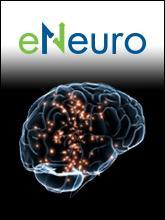
Research on memory reconsolidation has been booming in the last two decades, with numerous high-impact publications reporting promising amnestic interventions in rodents and humans.
Based on these publications, Laura Luyten and colleagues conducted extensive series of conceptual and exact replication attempts, performed by several experimenters and in different laboratories. However, a clear evidence for reactivation-dependent amnesia for fear memories in rats could not be provided (noteworthy, Laura Luyten and Tom Beckers received the first ECNP Best Negative Data Award in 2018). This suggests that such amnestic effects are not always readily found and that they depend on subtle and possibly uncontrollable parameters.
The discrepancy in results between replication attempts and the published studies suggests that the literature in this field might be biased. Thus, the authors performed a systematic review of the literature on reactivation-dependent amnesia for contextual fear memories in rodents, followed by a statistical assessment of publication bias in this sample. In addition, relevant researchers were contacted for unpublished results, which were included in the current analyses. The obtained results support the presence of publication bias, suggesting that the literature provides an overly optimistic overall estimate of the size and reproducibility of amnestic effects. Reactivation-dependent amnesia for contextual fear memories in rodents is thus less robust than what is projected by the literature. This might also explain the moderate success of clinical studies rather than reflecting translational issues. For the field to evolve, replication and non-biased publication of obtained results are essential. to increase transparency, reproducibility and credibility of research findings, a set of useful tools for scientists is provided in this article.
0 Comments
Leave A Comment